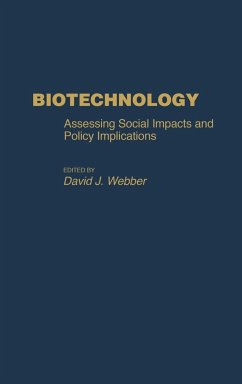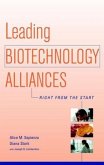This collection of 14 essays written by leading researchers on a variety of topics related to biotechnology focuses on the social, ethical, economic, legal, and political aspects of biotechnological applications. Usually defined as any technique that uses living organisms or processes to make or modify products, to improve plants or animals, or to develop micro-organisms, biotechnology has political characteristics similar to those of other technological advances, such as applications of artificial intelligence in manufacturing or new procedures in medicine. In all of these innovations, the rapid application of new scientific knowledge challenges existing social values, legal and political protections, and production processes. In presenting some of the technically and politically complex policy issues that need to be faced by local, state, and national-level policy makers, as well as academic, business, agricultural, and medical institutions during the next decade, these chapters anticipate an array of social, economic, and institutional consequences that will occur if biotechnology gains wide acceptance. The volume is divided into four sections that assess various facets of the biotechnological phenomenon. In Part I, biotechnology's social and political dimensions are probed in three chapters that examine the subject from three very different perspectives. American universities, agricultural cooperatives, and developing countries are the focus of Part II which investigates the response of institutions to biotechnological development. In Part III, biotechnology's potential impacts are gauged in three chapters that analyze economic and legal influences, inquire into the dairy industry and regulation of genetically engineered organisms, and evaluate regulatory experience with food safety. The final section is devoted to a presentation of public policy responses to biotechnology and includes four chapters that center on issue development and responsibilities, economic development and public policy as they relate to biotechnology, and a challenge to congressional policy makers and policy analysts. A real groundbreaker with substantial implications for the 21st century, this collection of essays must be read by all public policy makers and by scientists working to further biotechnological development. This work is suitable as a textbook in upper level and graduate courses in public policy, interdisciplinary biotechnology, and science and technology courses.







